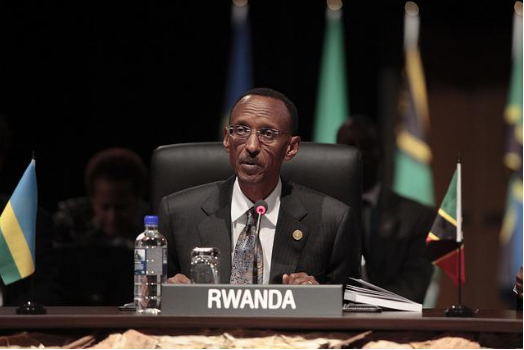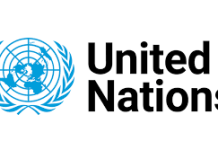Some African countries have expressed reservations as the continent moves to make the world’s largest free trade area.
Countries were to sign the Continental Free Trade Area (CFTA) treaty in Kigali, Rwanda on Wednesday.
Africa’s largest economy, Nigeria, has pulled out with President Muhammadu Buhari saying the country was holding domestic consultations on the deal before signing it.
Tanzania has hinted that it may not sign the agreement as it waits parliament to debate it, while Uganda has raised concerns over some tariffs.
“Tanzania has the political will to sign, but we need sometime to first subject the treaty to parliament and also understand what our population thinks about it before signing,” Tanzania’s Foreign minister Augustine Mahiga, told The EastAfrican.
Of Africa’s 54 countries, only about 20 heads of state were expected to sign the CFTA at the extraordinary African Union summit in Kigali. The agreement targets to boost intra-Africa trade by making a single market with a population of 1.2 billion people and cumulated GDP of more than $3.4 billion.
Rwanda’s President Paul Kagame, the AU chairman who is driving reforms at the continental bloc, said at the opening ceremony on Tuesday, the trade treaty provides Africa with an opportunity to break barriers and reap the benefits of integration.
The stakes are enormous for Africa, but also for the entire global economy, to which Africa will contribute an ever-greater share in the decades ahead,” said President Kagame.
“Increasing intra-African trade, however, does not mean doing less business with the rest of the world. On the contrary, as we trade more among ourselves, African firms will become bigger, more specialised, and more competitive internationally,” he added.
Several countries have expressed fears that a free trade area, which includes free movement of labour, would disrupt local markets, jobs and revenues.
Addressing concerns over the reluctance to open domestic markets, President Kagame urged “fair but also expeditious” consultations to iron out issues.
“Let’s also be realistic. We cannot take the Continental Free Trade Area for granted. After it is signed, there will still be challenges.
“Implementation will mean reform of procedures and rules at the national level. This won’t happen overnight. It will be a process requiring dialogue and flexibility,” he said.
The AU Commissioner for Trade and Industry, Mr Albert Muchanga, urged countries that were yet to complete national consultations to do, saying they would have another chance of signing at the next AU summit.
“When the negotiations started in 2015, a key principle agreed was that those ready to sign should go ahead. A lot of countries have not yet finalised national consultations and others are directly talking to parliamentarians and they require some time to finalise,” Mr Muchanga said.
“But signing is the first thing that has to happen. Just after this, on Wednesday, we shall have another summit in Mauritania, and we shall expect those member states with reservations to have finalised the process.”
At a meeting of Foreign Affairs ministers on Monday, some countries expressed concerns over the number of signatures needed to ratify the treaty. Some, like Tanzania, wanted the number increased from 15 to 22 countries.
“If you need a reasonable threshold, it cannot be only 15 countries; otherwise Ecowas (West African bloc) which is made up of 15 countries can sign it alone. This would not be representative. If we move it to at least 22 signatures to have it ratified then it can be taken seriously,” Tanzania’s Foreign Affairs Minister, Augustine Mahiga, said.
Heads of state that confirmed attendance of the AU summit include Kenya, Somalia, Djibouti, South Africa, DR Congo, Zimbabwe and Ghana. Others are Niger, Chad, Congo Brazzaville, Togo, Mauritania, Gabon, Guinea, Senegal, Mali, Madagascar, Guinea Bissau, Mozambique, Burkina Faso, Central African Republic, Libya, Comoros, Sahrawi, Lesotho, Gambia, and Angola.
Those sending delegates include Tanzania, Uganda, Egypt, Cote d’Ivoire, Seychelles, Morocco, Swaziland, Benin, Malawi, Mauritius, Botswana, Cape Verde, Namibia, Sao Tome, Tunisia, South Sudan and Eritrea.
Source: Africareview












